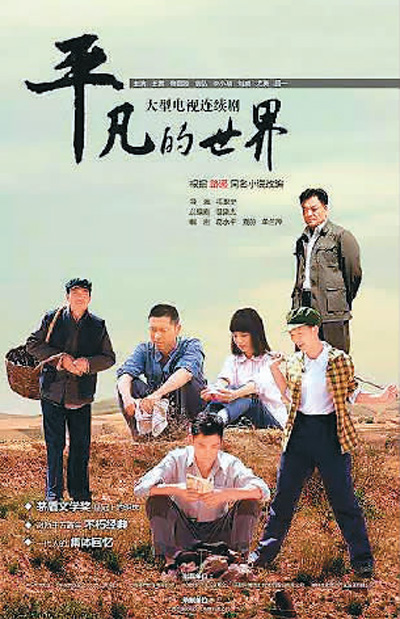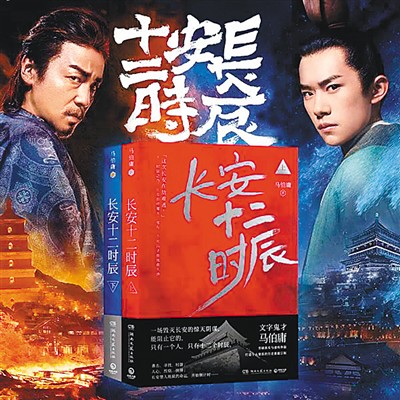Literary publishing and film adaptation strongly promote novel creation.


The prosperity of novels is closely related to the changes of external factors. Since the beginning of the new century, famous literary journals such as Harvest, October and Dangdai have published special issues or serialized novels, and large literary journals such as Selected Novels have been launched. Major publishing houses are committed to publishing masterpieces, and novels have a broader publishing platform. At the same time, online literature has been developing continuously, favored by the capital market, and film and television adaptation is in full swing.
The publishing industry is more likely to achieve two benefits.
Literary periodicals and publishing houses provide a high-quality platform for the publication of novels, and the supervision, encouragement and assistance of literary editors are even more essential for writers.
In recent years, People’s Literature magazine has published a series of masterpieces that have an important influence in the literary world. This year’s Mao Dun Literature Award-winning works "Leading the Wind" and "The Leading Role" were first published in People’s Literature. Shi Zhanjun, the editor-in-chief, said: "In recent years, we have intensified the excavation and editing of literary creation with revolutionary historical themes and realistic themes, and deeply participated in the creation, revision, publication and promotion of works from the front end to the terminal, and achieved good results. The works such as The Leading Role, Jing Shan Hai and Spring and Autumn by the Sea won the 15th spiritual civilization construction ‘ Five One Project Awards ’ This year, a sci-fi literature novel — — Wang Jinkang’s Cosmic Egg. "
October magazine, founded in 1978, published many novels in 1980s and 1990s, which had great influence in China, such as No.5 Garden Street, Heavy Wings, Song of Garlic Moss in Paradise and so on. In 2004, October Novel was published in October, and published six times a year. Chen Dongjie, editor-in-chief of October, said: "The huge volume can express more complicated social reality, and the feedback from readers gives us confidence in publishing a long story." Cheng Yongxin, editor-in-chief of Harvest magazine, feels the same way. From 2001, Harvest published an annual long special issue; From 2002 to 2016, two long special issues were launched every year, namely, spring and summer volumes and autumn and winter volumes. Since 2017, the long special issue of Harvest has cooperated with Changjiang Literature and Art Publishing House and expanded into four issues a year, which are divided into spring rolls, summer rolls, autumn rolls and winter rolls. This year’s Mao Dun Literature Award-winning work Ying Wu Xiong was published on it.
The communication and collision between literary editors and writers also inspired the writers’ creative inspiration. Xu Zechen once said that the origin of Northbound came into contact with Han Jingqun, editor-in-chief of Beijing October Literature and Art Publishing House. "In 2014, shortly after I finished writing Jerusalem, in a chat, Mr. Han said that it was better to write about the canal, and I began to have this idea."
Talking about why the publishing house has a special liking for novels, Song Qiang, director of the planning department of People’s Literature Publishing House, said: "Novels are the most popular and eye-catching literary category. Compared with poetry, novels have a wider audience, and readers can get a deep and lasting reading experience, which is more likely to resonate. Our manuscripts to writers are mainly about novels. " Among the books published by Literature and Art Publishing House every October, there are about half of novels. Lu Yingxiong, president of Writers Publishing House, said: "For publishing houses, it is easier to achieve better social and economic benefits by publishing more excellent novels that conform to the melody of the times. Furthermore, novels are also the basis of film and television adaptation, which contains huge market potential.
Film adaptation is the potential driving force.
Not long ago, The Longest Day In Chang’an, an online drama adapted from a novel of the same name, captured a large audience with excellent pictures and gripping stories. According to the data released by Shuqi Fiction and Tmall Books in early August, the number of e-book readers and the sales of paper books in The Longest Day In Chang’an increased by 818% and 862% respectively in the past month.
In recent years, after the hit of some TV dramas, the sales of original books showed a rapid upward trend. Lu Yao’s novel Ordinary World, which won the Mao Dun Literature Prize, has attracted wide attention because of the great influence of the original. The movie Wolf Totem appeared on the screen in February 2015, and it was only released for half a month. While earning more than 500 million yuan at the box office, it also promoted the sales of the original novel to surge by 20 times compared with last month. At the beginning of 2017, with the popularity of TV series to the sky kingdom, the original paper books also increased fivefold, and its Kindle e-books increased more than 20 times.
The film and television drama market is optimistic about novels. Writers have tasted the sweetness of increasing book sales and increasing popularity, and their creative enthusiasm has been constantly stimulated. Film and television adaptation has even become the reason for the birth of some novels.
Different from the mode of finding original works, adapting and shooting by producers, some novels are specially created for the production of film and television dramas. Zhao Yong, a professor at Beijing Normal University, introduced the reasons for the creation of Yan Geling’s novel "Youth": Xiaogang Feng, the director, wanted to present his experience as a literary and art soldier in the past through movies, so Yan Geling cooperated with him to write the novel "Youth" to provide story content for the film. The adaptation of film and television plays has become a looming subconscious in the writer’s creation. Nowadays, when some writers create novels, they hope that their works will be taken into account by famous directors, so they will consciously or unconsciously consider the factors of film and television in the future.
In addition to the adaptation of film and television dramas, creating cultural IP of novels in all directions has also become a new phenomenon in the cultural industry market in recent years. "Now it is the development of the whole industry chain. After the hit of film and television dramas, the original novels have been adapted into other big IP, and more artistic styles have been exhausted for the original works, such as the development of animation and games to maximize the benefits." Dai Qing, a professor at China Communication University, said. (Zhang Pengyu, Li Yuqing, Pan Junyu)